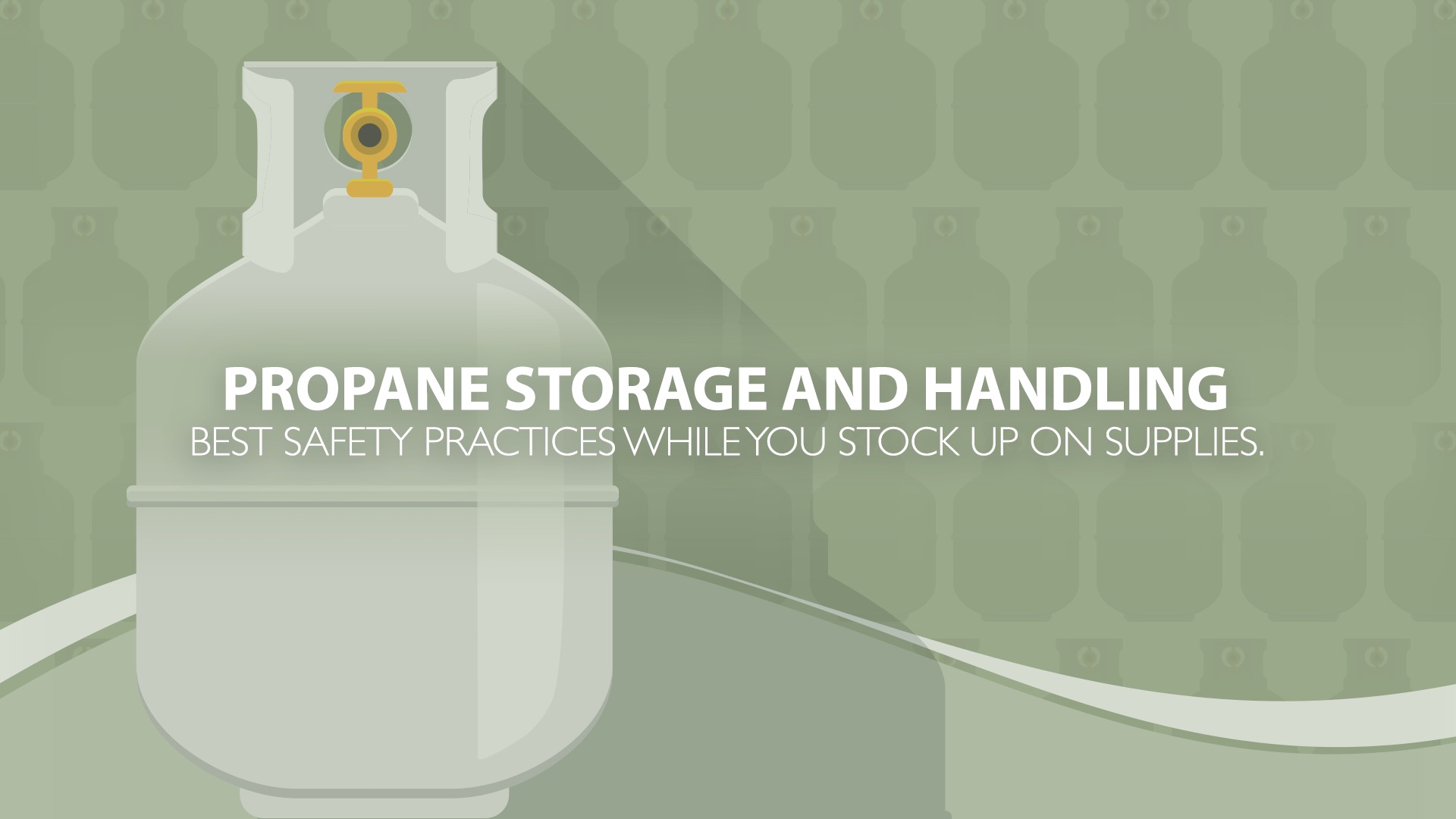Propane storage and handling: Best safety practices while you stock up on supplies.

The COVID-19 global pandemic poses an unprecedented risk to public health and safety and has already had a tremendous impact on our economy. Consequently, home and business owners have many questions regarding policy wording and insurance coverage relating to COVID-19.
To answer these questions, the Palladium Insurance Group is presenting a series of articles meant to address concerns relating to COVID-19. In this article, we highlight a risk that may not have been considered during this pandemic.
Authorities have consistently warned the public against the practice of “hoarding” such things as Personal Protective Equipment (PPE) used by medical professionals. However, what about objects which pose a direct threat to human safety and/or property? Some homeowners may have chosen to stock up on fuel for vehicles/equipment (i.e. riding mowers), or propane for cooking. Contractors may be purchasing additional supplies of various hazardous materials, including propane tanks used for winter heating operations. It is critically important that these materials be handled and stored properly to avoid fire, or explosion.
Here are some safety tips for propane transportation and storage:
Propane Transportation Tips
- Secure tank(s) in an upright position
- Do not transport more than four (4) propane cylinders in an enclosed vehicle
- Do not transport more than 90 lbs of total propane weight in an enclosed vehicle
- One (1) cylinder can only have up to 45 lbs of propane total when in an enclosed vehicle
- A pickup can transport up to 1,000 lbs of propane, ideal for large tank transportation
- Do not smoke while transporting propane
- Never leave propane tanks inside a vehicle
- Consider using a propane tank stabilizer
Propane Storage Tips
- Never store propane tanks inside a home, shed or garage
- Make sure the tank is shut off
- Keep the tank in a well-ventilated area outside
- Check for leaks
- Do not cover the propane tank
- Regardless of the age of your propane cylinder, always check your tank, valves and connector hose for leaks or other signs of wear and tear.
If you have any questions or concerns regarding the safety and storage of your materials, or to learn more about any of the information above, please contact us. We’re always happy to speak with you.



